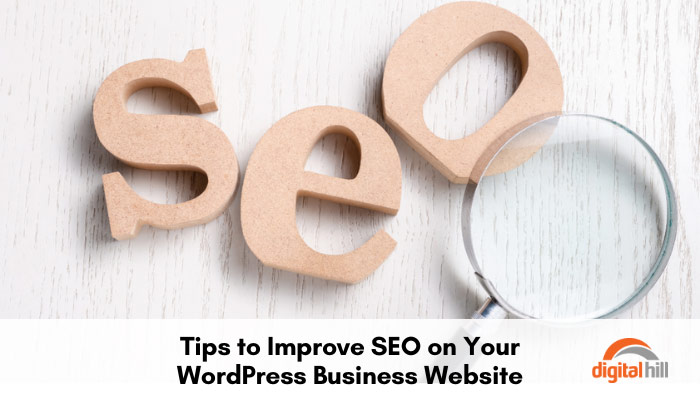Tips to Improve SEO on Your WordPress Business Website

Your WordPress business website is the frontline of your brand’s online presence. As a business owner, your job is to ensure that people can find your website in the vast ocean of the internet. Hence, the right SEO strategy can make or break your business. Good SEO can make your website more visible, clickable, and engaging to potential customers. Let’s dive into some practical tips to improve SEO on your WordPress website, ensuring your business doesn’t just exist online but thrives.
1. Choose the Right Hosting Provider
Your SEO journey starts before the first line of code is written or the first piece of content is uploaded. The foundation of good SEO is a reliable hosting provider. A fast, secure, and reliable hosting provider not only ensures your website loads quickly but also contributes to a positive user experience, a key factor in SEO rankings. Don’t skimp on hosting; it’s the foundation of your website.
2. Opt for an SEO-Friendly Theme
With thousands of WordPress themes available, it’s tempting to pick the most visually appealing one. However, it’s crucial to choose a theme that is optimized for SEO. Look for themes that are responsive, fast, and coded using best SEO practices. A well-coded theme not only loads faster but also ensures search engines can crawl your site efficiently.
3. Utilize SEO Plugins
One of the beauties of WordPress is its vast repository of plugins, and when it comes to SEO, you have options. Plugins like Yoast SEO or All in One SEO Pack can guide you in optimizing your content, titles, meta descriptions, and more. These plugins almost give you access to an SEO consultant within your WordPress dashboard. Utilize real-time insights and suggestions to improve your site’s SEO.
4. Craft Quality Content
Content is king in the realm of SEO. Your website must offer valuable, relevant, and engaging content that resonates with your audience. Focus on creating content that solves problems, answers questions, or provides value to visitors. Remember, just stuffing keywords is not a viable strategy. Instead, create content that genuinely adds value to your audience’s life.
Include These in Your Content Strategy:
- Keyword Research: Understand what your audience is searching for and incorporate those keywords naturally into your content.
- Regular Updates: Keep your content fresh and updated. A blog is a great way to add regular content to your site.
- Multimedia Elements: Use images, videos, and infographics to make your content more engaging and shareable.
5. Optimize Your Images
Images are great for user engagement but can slow down your site if they are not optimized correctly. Use tools to compress your images without losing quality. Ensure you’re also adding ALT text to your images, which improves accessibility and provides search engines with more context.
6. Leverage Social Media Integration
Social signals may not be a direct ranking factor, but they contribute to your site’s overall online presence and authority. Integrate social sharing buttons to make your content easily shareable and amplify your reach. In turn, this can drive more traffic to your site.
7. Secure Your Site with HTTPS
Security is a top priority for search engines, and HTTPS is considered a ranking signal. Ensuring your site is secure not only builds trust with your visitors but also gives you a slight edge in search rankings. Most hosting providers offer free SSL certificates, so there’s no excuse not to secure your site.
8. Focus on Site Speed
Site speed is a crucial factor in user experience and SEO. A slow site can lead to high bounce rates and poor rankings. Optimize your site’s speed by compressing images, minimizing code, and leveraging caching. Tools like Google PageSpeed Insights can provide valuable insights into your site’s performance and suggest improvements.
Provide Value and Experience
Use these tips to improve SEO on your WordPress website; however, this is an ongoing project. Remember, SEO is about appeasing search engines and providing value and a great experience to your visitors. By following these tips, you can build a stronger, more engaging online presence for your business.